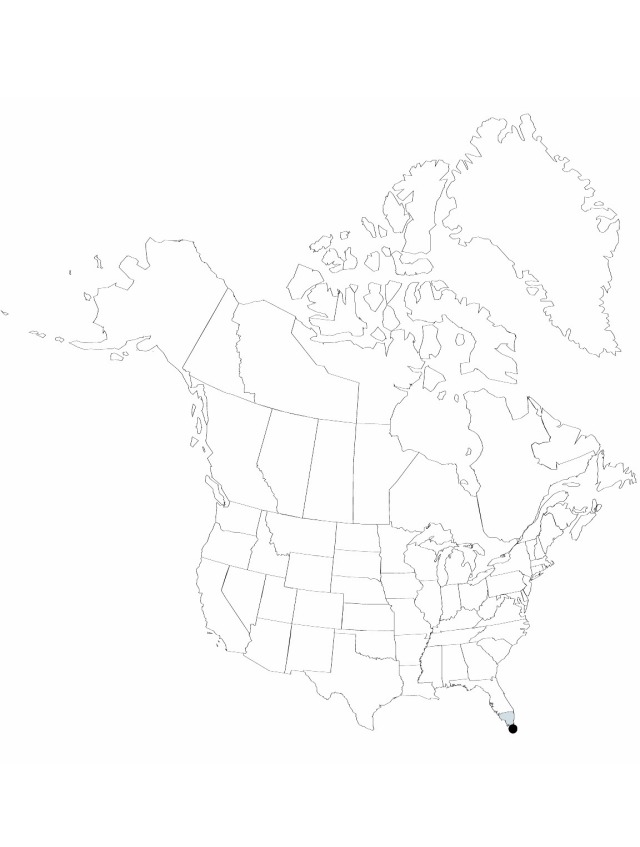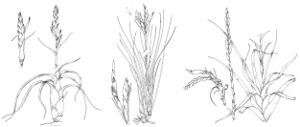Tillandsia variabilis
Linnaea 18:418. 1844.
Plants usually single, rarely clustering, flowering to 40 cm. Stems short. Leaves 15–20, many-ranked, spreading, gray-green or flushed rose, 12–30 × 1–2 cm, finely appressed-scaly; sheath pale to nearly chestnut-brown, ovate, flat, not forming pseudobulb, 2–4 cm wide; blade narrowly triangular, tapering evenly from base to apex, nearly plane to channeled, soft, brittle, margins involute, apex attentuate. Inflorescences: scape conspicuous, erect or ascending, 3–10 cm, 2–5 mm diam.; bracts densely imbricate, erect, blade often hanging, like leaves but gradually smaller; sheath of bracts narrowing abruptly into blade; spikes erect or ascending, never palmate, linear, compressed, 5–20 × 0.8–1.2 cm, apex acute; simple or laxly 2–3 lateral branches. Floral bracts laxly imbricate, erect, green, red, or purple, broad (covering all or most of rachis, rachis not visible at anthesis), elliptic, keeled toward apex, 1.8–2 × 0.6–0.9 cm, leathery, base visible in fruit, apex acute, surfaces glabrous. Flowers 5–30, conspicuous; sepals with adaxial pair connate, oblong, keeled, 1.5–1.8 cm, thin-leathery, slightly veined, apex obtuse, surfaces glabrous; corolla tubular, petals erect, lavender-blue, ligulate, to 3 cm; stamens exserted; stigma exserted, conduplicate-spiral. Fruits to 3 cm.
Phenology: Flowering spring–fall.
Habitat: Epiphytic in moist, shaded habitats
Elevation: 0–30 m
Distribution

Fla., Mexico, West Indies, Central America, South America
Discussion
Selected References
None.
